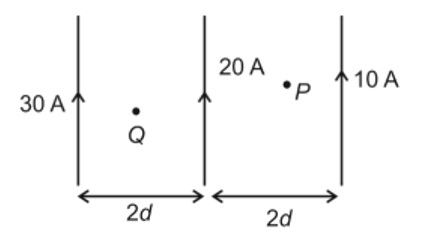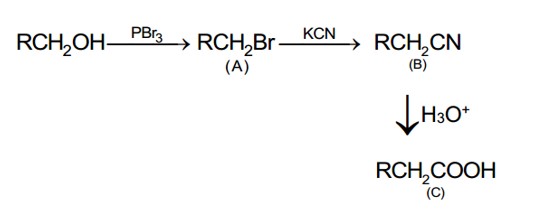How will you prepare the following compounds from benzene? You may use any inorganic reagent and any organic reagent having not more than one carbon atom
(i) Methyl benzoate
(ii) m-Nitrobenzoic acid
(iii) p-Nitrobenzoic acid
(iv) Phenylacetic acid
(v) p-Nitrobenzaldehyde.
How will you prepare the following compounds from benzene? You may use any inorganic reagent and any organic reagent having not more than one carbon atom
(i) Methyl benzoate
(ii) m-Nitrobenzoic acid
(iii) p-Nitrobenzoic acid
(iv) Phenylacetic acid
(v) p-Nitrobenzaldehyde.
-
1 Answer
-
1. When benzene is treated with Br2 In presence of ferric bromide (brominating agent) they form bromobenzene. When bromobenzene is treated with Mg in ether it will form Grignard reagent, and if the CO2 is treated with Grignard reagent (in acidic condition) it will form benzoic acid. After esterification reaction in presence of methanol it will form methyl benzoate.

2. When benzene is treated with Br2 In presence of ferric bromide (brominating agent) they form bromobenzene. When bromobenzene is treated with Mg in ether it will form Grignard reagent, and if the CO2 is treated with Grignard reagent (in acidic condition) it will f
...more
Similar Questions for you
CH3—CH2—CHO does not undergo Cannizzaro reaction because it has α-hydrogen.
Acetaldehyde (CH3CHO) gives positive lodoform test and positive Fehling's solution test
CH3—CH2—CHO does not undergo Cannizzaro reaction because it has α-hydrogen.
Taking an Exam? Selecting a College?
Get authentic answers from experts, students and alumni that you won't find anywhere else
Sign Up on ShikshaOn Shiksha, get access to
- 66k Colleges
- 1.2k Exams
- 681k Reviews
- 1800k Answers










